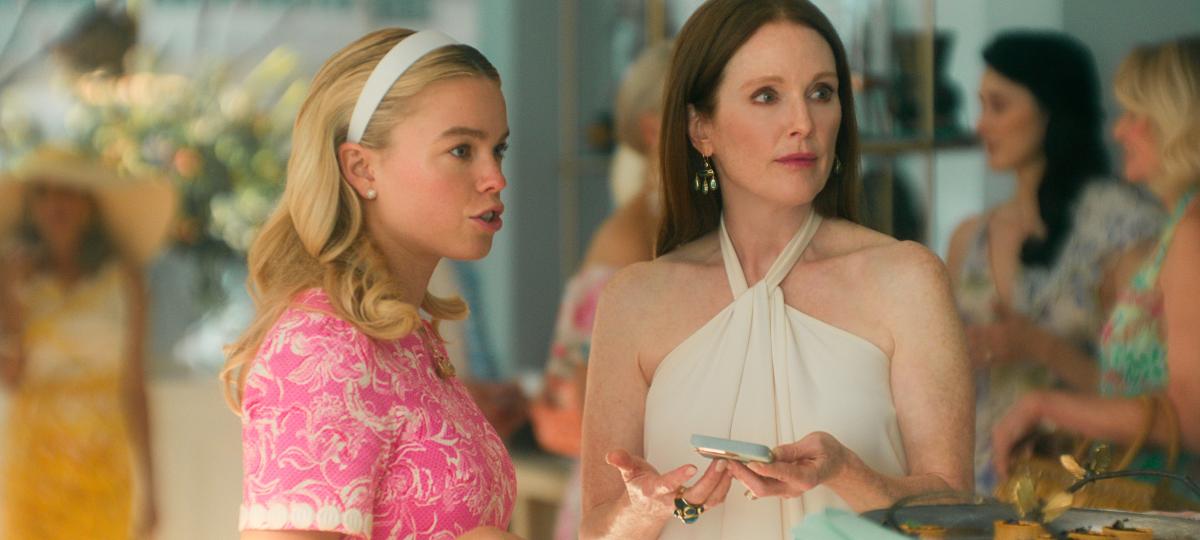Biennale curator Koyo Kouoh was a leading voice in the art world
:format(webp)/s3/static.nrc.nl/images/gn4/stripped/data125163484-0048b7.jpg)
She was one of the leading African voices in the art world and she described herself as a « fundamental pan Africanist. » Koyo Kouoh, director of the Zeitz Museum of Contemporary Art Africa (Mocaa) in Cape Town and as the first African woman in December as curator of the world’s most famous Biennial, who died in Venice. She was 57 years old.
The news from Kouoh’s death was announced on Saturday by the Zeitz Mocaa and Raw Material Company, the art center that she founded in 2008 in the Senegalese capital Dakar. « Our mentor, leader and eternal visionary went to another world, » wrote Raw, « leaving us in deep sadness and immense sadness. »
On May 20, Kouoh would present the title and the theme for the Venice Biennale, which will open next May next May. She had worked hard on the concept in recent months. « Her sudden and early death leaves an immense emptiness in the world of contemporary art, » writes the Biennale a reaction.
Read also
Also read: With the appointment of Koyo Kouoh as the main curator of Biennial of Venice, a conservative course is not aimed – unlike feared –
With the appointment of the Cameroonian Kouoh, festival director Pietrangelo Buttafuoco surprised. It was expected that the supporter of the radical-right Prime Minister Giorgia Meloni was appointed shortly before conservative would sail. Buttafuoco called the appointment of Kouoh « a confirmation » of the fact that the Biennale is « a house of the future ».
Kouoh was « ecstatic » About her appointment, she told The New York Times (NYT). According to her, she was not an emphasis that she was the first woman from Africa to get this prestigious role. In 2016 she said: « Every time an African person achieves something, it is emphasized that she or he is the first. It is always exceptional. » She called it « First-and-only« Syndrome. That syndrome is now being challenged, she said. » That means we talk to ourselves and that is where the real discussions start. «
Kouoh wanted to make a main exhibition that « really speaks to our time. » That was exactly her strength in her impressive career. Like no other, she managed to hit the string of the moment. That was clearly visible in the exhibition When we see us,, » a retrospective From figurative art from 1920 to now by black artists, in which Kouoh shows that there is a painful hole in the collections of Western museums in this area. The traveling exhibition, which opened in the Zeitz Mocaa in 2022, can currently be seen in the BOZAR in Brussels. About this exhibition she said against the Financial Times (FT): « I belong to the continent and the whole continent belongs to me. »
Read also
Also read: No pain but joy in a century of black self -representation
Switzerland
Kouoh was born in Douala, Cameroon and moved to Switzerland with her family at the age of thirteen. There she studied business administration and banking. After she became a mother, she, she decided to return to Africa. She told journalists that she « couldn’t imagine that she would raise a black boy in Europe. »
It became Dakar, the epicenter of the West African art world. « That city made me who I am now, » she said early this month Still against the ft. She became a curator and opened RAW Material Company in 2008. What started as an artists’ residence grew into one of Africa’s most respected art centers. Kouoh became involved with Biennales (Dakar, Bamako, Ireland) and in the Documenta in Kassel (2007 and 2012) and Kunstbeurs 1:54.
In 2019 she was approached to become director of the Zeitz Mocaa, a museum with one of the largest collections of modern, African art on the continent. That was in heavy weather, partly after accusations of misconduct by its predecessor. With its ideas and a thorough reorganization of the collection, Kouoh brought the museum to life again, « one of the main curators told the Nyt.
Much more than indicate the black artists who ignored and interpreted the Western world for a long time, Kouoh wanted to offer new perspectives. Also on the Venice Biennale next year. That would not be a ‘African Biennial’, she emphasized. « The artists determine the way. »

:format(webp)/s3/static.nrc.nl/wp-content/uploads/2025/02/12152152/data127958422-10cd6e.jpg)
:format(webp)/s3/static.nrc.nl/images/gn4/stripped/data131942827-b7af1a.jpg)
/s3/static.nrc.nl/wp-content/uploads/2025/05/12094428/web-1205ECOBLOGgeneve-1.jpg)
/s3/static.nrc.nl/wp-content/uploads/2025/05/12083458/web-1205ECOBLOGlula.jpg)



